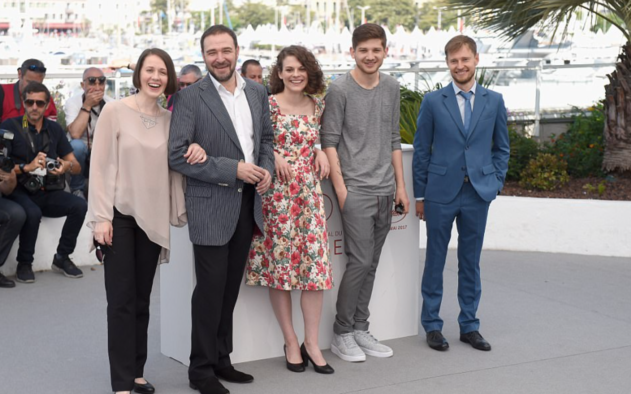CANNES FESTIVAL, “Tesnota”
The first thing that I noticed while watching Kantemir Balagov’s new film “Tesnota” (“Closeness” in the original russian) is the performance by lead actress Darya Zhovner. Her Ilana, the character from whose point of view the film is told, is a tomboy who works in her step-father’s garage and whiles away the days hanging out with her boyfriend. Zhovner, for whom this film represents a first role (she graduated from Moscow’s Art Theater school) gives a performance that’s full of humanity and unexpected, almost slightly irritating, mannerisms. There’s something irresistible about Zhovner’s performance but maybe it’s a cultural thing and I’m merely responding to a Russian’s way of smiling, or expressing surprise because it strikes me as novel. Zhovner has a lot of presence on screen and, should she continue as an actress, she has a bright future. As does director Kantemir Balagov, who at 26 has four films under his belt with “Tesnota.” The pitch for the film goes like this: after her brother and his spouse get kidnapped Ilana and her family need to raise funds for a ransom.
Balagov was born in Nalchik, the capital of Kabardino-Balkar Republic in Russia. Various ethnic tribes fought for territory here in the late eighteenth century, until a city was built and tensions between the different ethnicities abated. There’s a sizeable Jewish community here. Balagov took law and economics courses. After his father offered him a camera he started taking photos, then video, and went on to make web serials. In a serendipitous event, no less than Aleksandr Sokurov (his “Russian Ark” is a part of an upcoming series on my twenty-five most favorite film that I’m working on this blog) opened a film school in Nalchik. A friend of his suggested to Balagov that he go and sign up. He ingratiated himself to Sokurov who took him under his wing. His foundation would later provide some of the funding for this film.
news via inbox
Nulla turp dis cursus. Integer liberos euismod pretium faucibua




